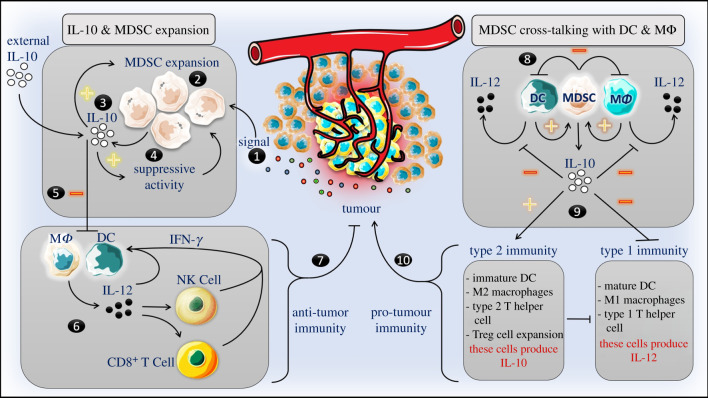Figure 1.
Mechanisms of anti-tumour immune response subversion by MDSC/IL-10. In fact, inflammation provides a signal that promotes MDSC expansion. MDSCs are primary producers of IL10 a potent antiinflammatory cytokine. In turn, MDSC-derived IL-10 and IL-10 produced by other cells could also promote the expansion of MDSC and enhance the immunosuppressive activity. IL-10 can also inhibit the production of IL-12 by dendritic cells (DCs) and macrophages (MΦ). IL-12 is essential for initiation of anti-tumour immunity by activating the maturation of natural killer (NK) cells that, in turn, produce inflammatory cytokines such as IFN-γ that further activate the maturation of professional APCs such as DCs and MΦ triggering a positive feedback loop. In addition, IL-12 can activate cytotoxic T lymphocytes (CD8+ T cells). NK cells and CD8+ T cells are essential to fight tumor cells. As such, MDSCs can inhibit antitumor immunity at least in part through production of copious amounts of IL-10, i.e. without a direct cell-to-cell contact. On the other hand, direct cross-talking between MDSCs and DCs and/or MΦ can also inhibit the maturation of DCs and blunt the production of IL-12. Rather, this direct cell contact can potentiate the production of IL-10 by MDSCs, which in turn further inhibits the production of IL-12, an essential driver of type 1 immunity ‘anti-tumour immunity’. MDSCs/IL-10 can inhibit type 1 immunity while promote the type 2 immunity that is known to promote tumour progression.

